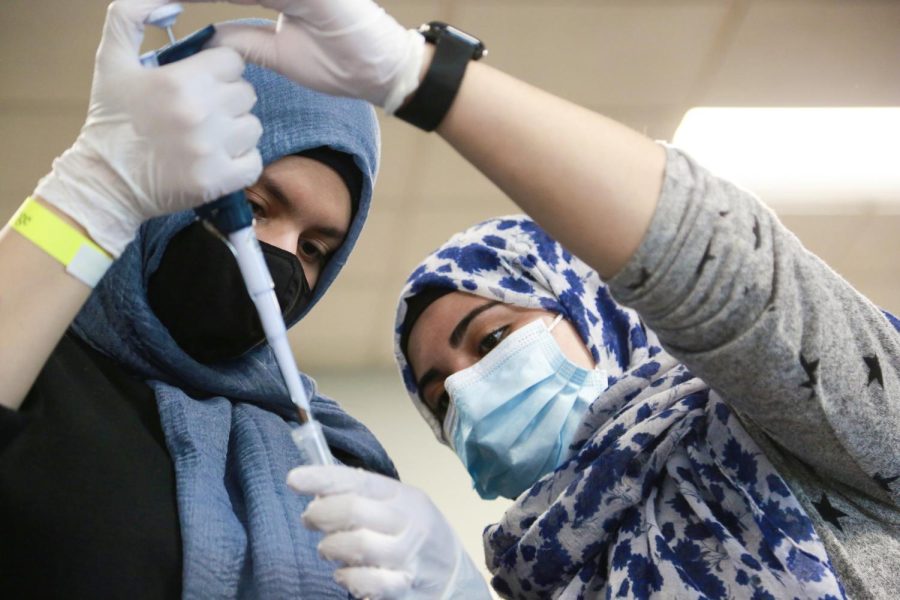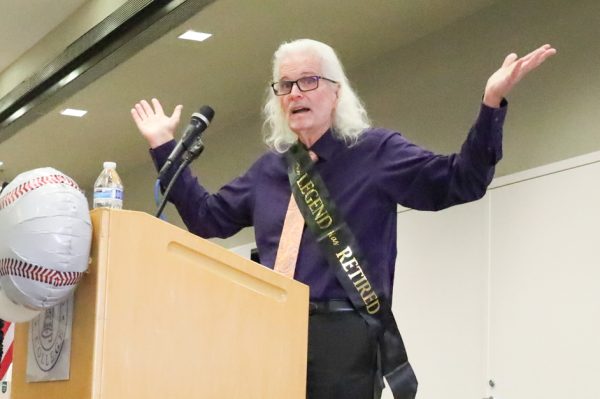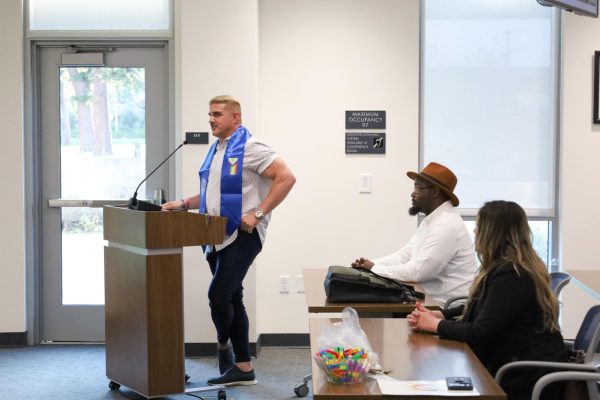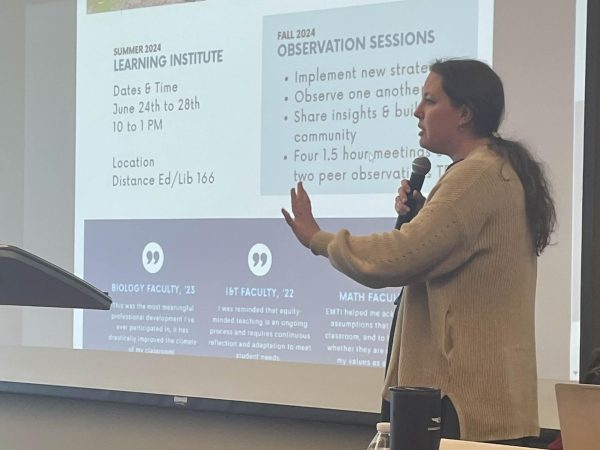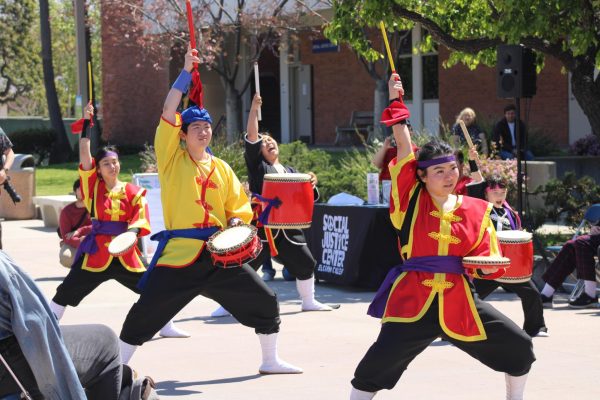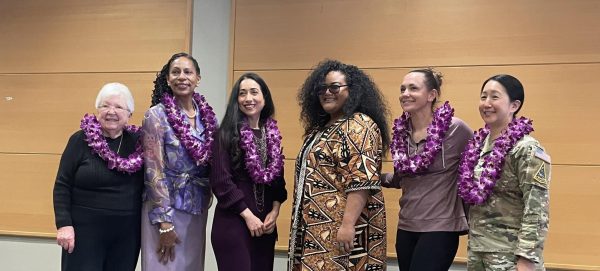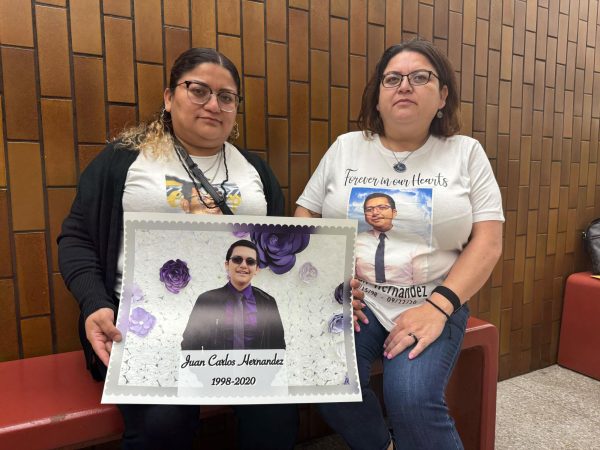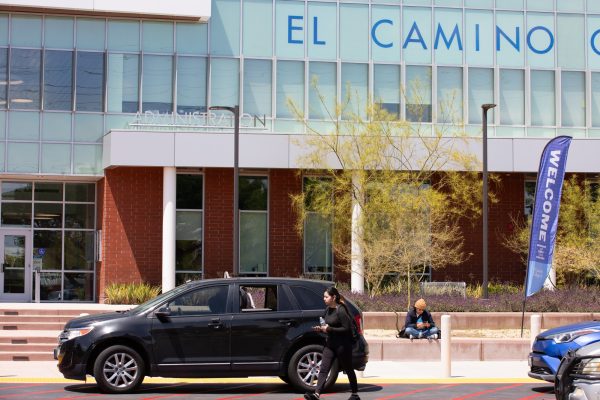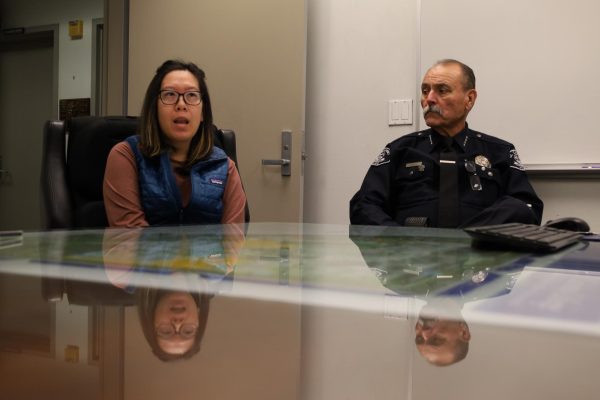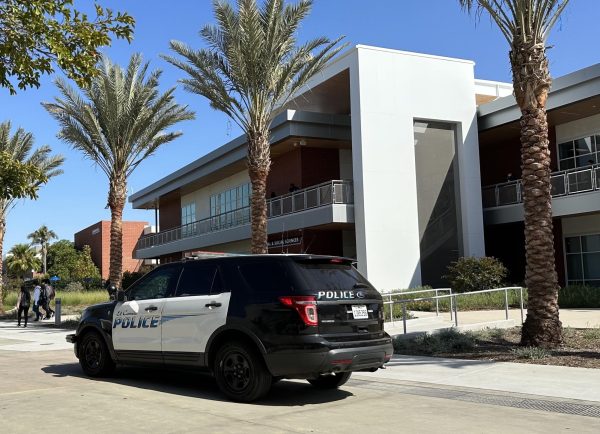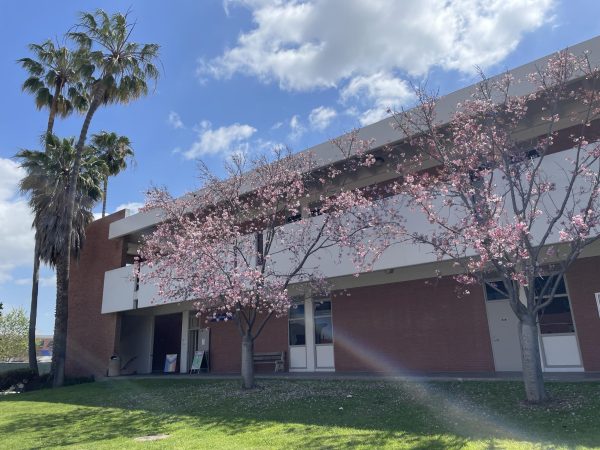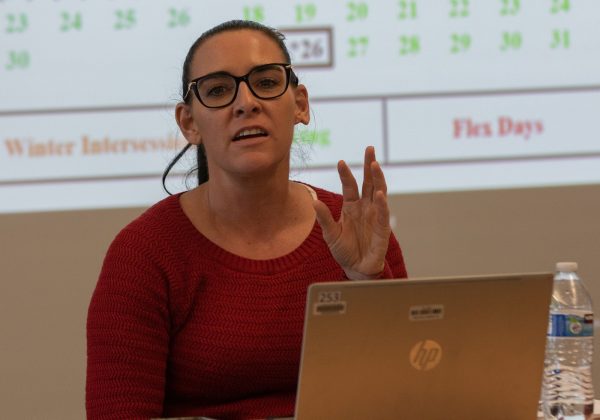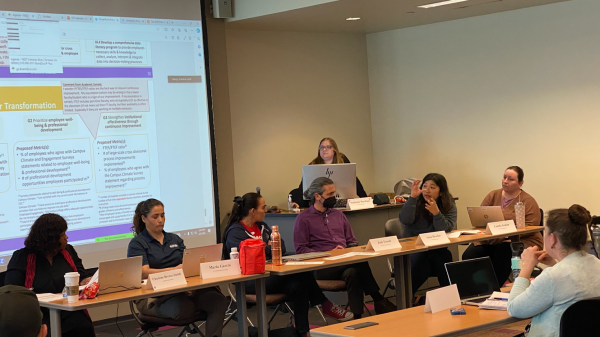El Camino College hosts first research club event
El Camino College Biology majors, Rania Kakar, left, and Sana Sardar, right, try to pick fish cellular tissue during a DNA extraction project in which ECC Research Club students tested and compared fish samples to see if fish advertised in stores were misclassified, on Friday, Dec. 3. Mari Inagaki/The Union
El Camino College’s Research Club conducted their first research experiment in the Life Sciences Building on Dec. 3.
The research experiment got two different fish samples and had it’s DNA extracted and tested within a lab.
“The experiment was tested to see misclassification of fish and whether the identity of the fish is the same as what’s advertised in the store,” research coordinator, Jennifer Sheriff (30) said.
Darcie McClelland (37) Associate Biology Professor and Academic Senate President at El Camino College (ECC) planned the event in collaboration with the Research Club and serves as the club’s adviser.
“A lot of my role as advisor of this club is facilitating research experiences for the students and the goal of the club is trying to get more research experiences for El Camino students who are in the club,” McClelland said.
The club educates students on how to write applications for research experience, how to seek research experience and how to network with other college students.
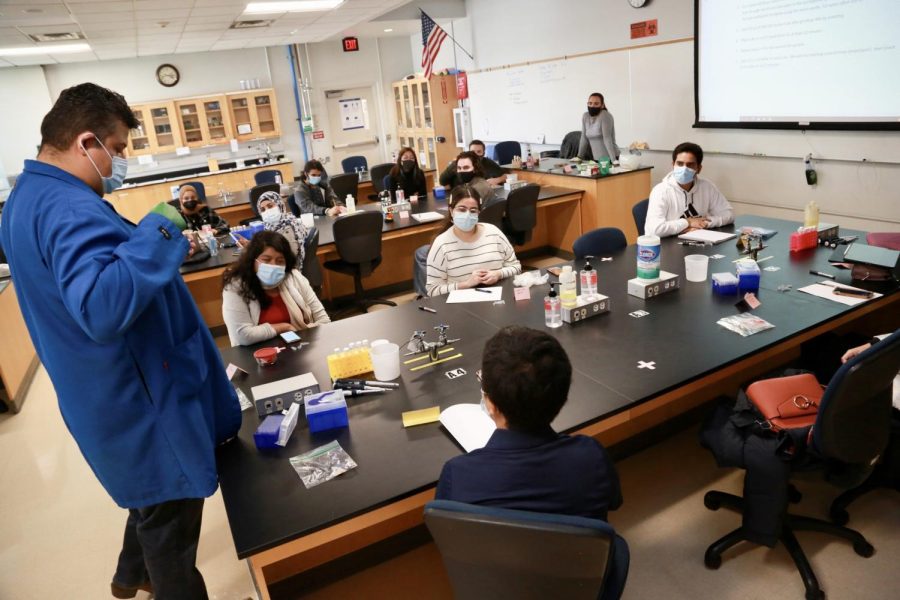
McClelland has less time to advise students outside of class due to her position on the Academic Senate. However, mentoring the club has pushed her towards reconnecting with students.
“This club forces me as a mentor to make new connections and get in touch with people I know personally,” McClelland said.
McClelland said that the past two years have taught her the value of scientific literacy due to misinformation from the pandemic.
“As we train more students to be scientifically literate and teach their friends and family to be scientifically literate, we develop more scientific literacy in our society,” McClelland said.
McClelland’s role as an adviser demands networking, creating personal connections and brainstorming new ways to deliver research to students.
Alex Cortez (42) is an academic coordinator in the Dynamic Genome program at the University of California, Riverside, and was invited to the event. Cortez said that there were inherent advantages of conducting research during a pandemic.
“It helps to inform the public. With COVID we understand the cellular mechanisms for infections and better treat patients and prevent further infections,” Cortez said.
Cortez hopes to build a better pipeline to integrate research conducted in classrooms from children to graduate training.
“The pandemic brought different awareness in science on a higher platform. Inspiring young individuals as well as older individuals in the workforce to consider these careers. It has also transformed the economy,” Cortez said.
Undergraduates can participate in the Dynamic Genome program both through classes and internships.
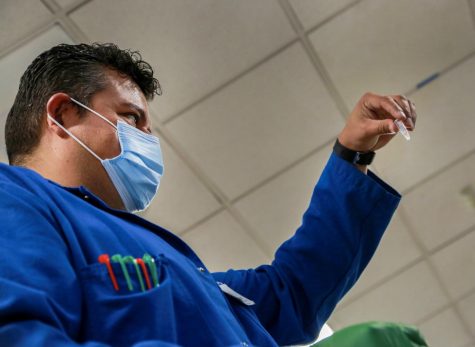
Cortez demonstrated the experiment to ECC students and as a result the students, such as Nazhish Sardar, gained an understanding of what research involves.
Sardar (21) an biochemistry major and the president and co-founder of the research club, intends to use the Research Club as a bridge between students and their academic careers.
“This club is specifically designed for students to directly connect them to four-year universities,” Sardar said.
Sardar said she was reluctant at first to start the club but eventually grew to appreciate what the club had to offer students.
“We were a little hesitant about starting the club due to the lack of resources and the nature of the club because it was the first of its kind and could get declined easily,” Sardar said.
The board of the Research Club contacted four-year universities and requested their abilities in providing resources and tools for students. They also asked students whether they were interested in conducting research.
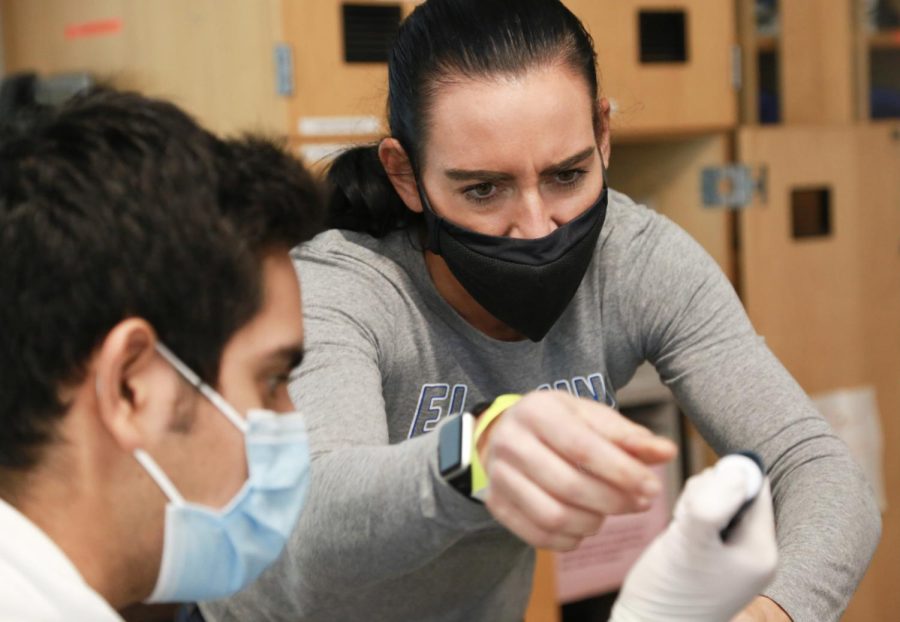
Since research opportunities were absent at ECC before the club’s formation, Sardar’s first encounter with research was through this experiment. Her comfort level with her peers was visible when she took a break to say her prayer, Jumu’ah, during the experiment.
“This club has really encouraged me to represent myself and my identity in a very comfortable way,” Sardar said, “I am in a position where I am required to connect to others so it’s really easy for me to express who I am.”
Patrick Williamson (25), the external vice president of the Research Club, was planning to apply to medical school after receiving his bachelor’s degree. Williamson’s first encounter with the club was through a class he took with McClelland and saw how one classmate was starting a club for research.
“This club levitates anxiety for people who want to begin research,” Williamson said.
Williamson said there was difficulty with online interactions due to the disadvantage of not properly meeting people, but is hoping to stay in the club and encourages students to join.
“The Research Club is open to all majors, not just science. We want to make sure everyone gets an opportunity with research,” Williamson said.
Editor’s note: Photos reorganized and resized for readability on Tuesday, Dec. 14, 2021.


